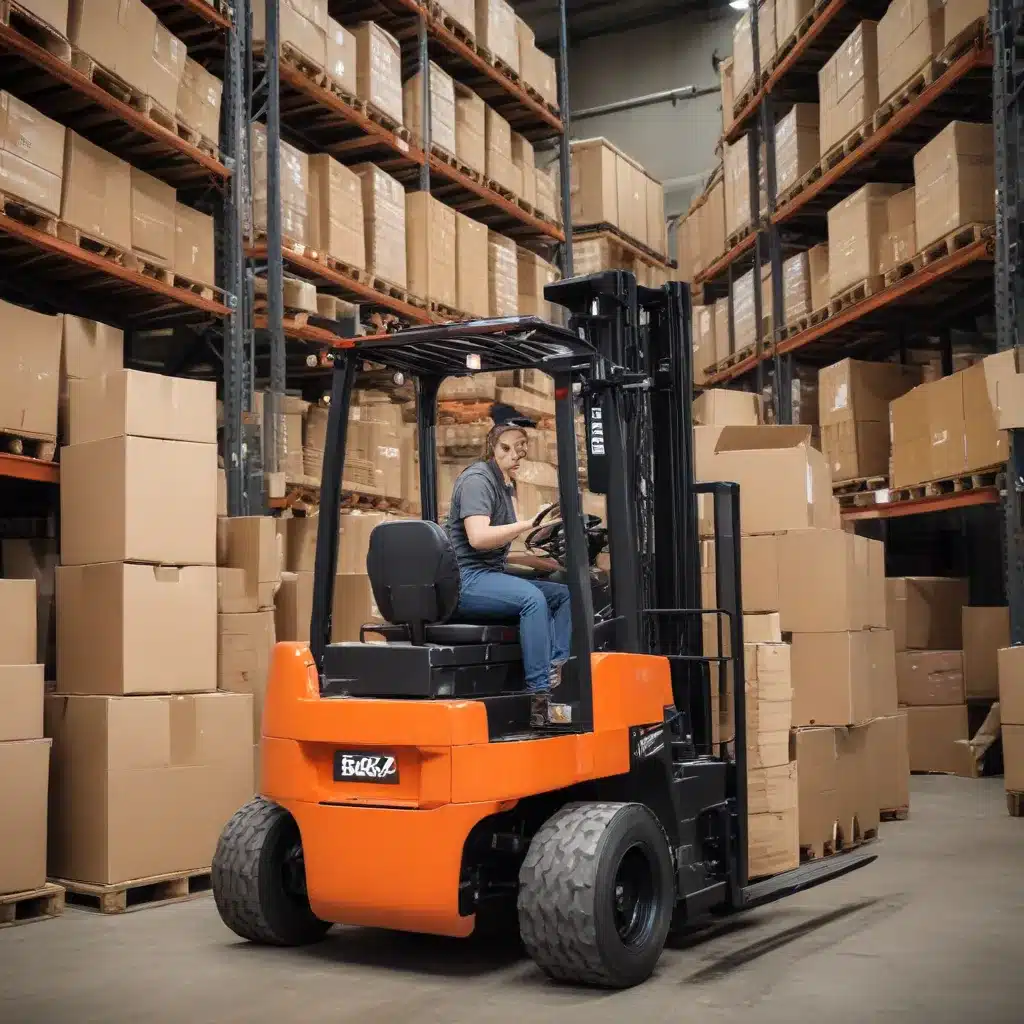
Understanding the Total Cost of Forklift Ownership
When it comes to managing a warehouse or logistics operation, the decision to buy or lease forklifts is a critical one that can have significant long-term financial implications. While the upfront cost of purchasing a forklift may seem lower than the monthly payments of a lease, the hidden expenses associated with forklift ownership can quickly add up, often making leasing the more cost-effective option in the long run.
The total cost of ownership (TCO) is a crucial metric to consider when evaluating the true cost of forklift acquisition. This financial analysis takes into account not just the initial purchase price, but also the ongoing operational, maintenance, and replacement costs over the forklift’s entire lifecycle. By understanding the TCO, warehouse and logistics managers can make more informed decisions that optimize efficiency, reduce expenses, and enhance their bottom line.
Unraveling the Hidden Costs of Forklift Ownership
Maintenance and Repair Expenses
One of the most significant hidden costs of forklift ownership is the expense associated with maintaining and repairing the equipment. As forklifts are put through rigorous use in warehouse and logistics operations, they are susceptible to wear and tear, requiring regular servicing, replacement parts, and occasional major repairs. These costs can quickly add up, especially as the forklift ages and becomes more prone to breakdowns.
Forklift owners must factor in the labor costs for technicians, the price of replacement parts, and the potential downtime and lost productivity when a forklift is out of service. Additionally, the need to employ in-house maintenance staff or outsource these services can further increase the TCO.
Operator Training and Certification
Ensuring the safe and proper operation of forklifts is a critical responsibility for forklift owners. This requires ongoing training and certification for forklift operators, which can be a significant expense. The costs of initial training, refresher courses, and maintaining a pool of certified operators must be accounted for in the TCO calculation.
Failure to provide adequate training can lead to safety incidents, which can result in costly fines, legal liabilities, and increased insurance premiums. Investing in comprehensive operator training and certification is not only a legal requirement but also a vital component of responsible forklift ownership.
Storage and Logistics Costs
Forklift ownership also comes with the expenses associated with storing, transporting, and managing the equipment. Warehouse owners must allocate space for the forklifts when not in use, which can come at a premium cost, especially in high-demand urban areas. Additionally, the logistics of moving the forklifts between job sites or to a service center can incur significant transportation and labor expenses.
These ancillary costs, which are often overlooked, can significantly impact the overall TCO of forklift ownership and should be carefully considered when evaluating the viability of purchasing versus leasing.
Replacement and Resale Challenges
As forklifts age, their value depreciates, and the need for replacement arises. Forklift owners must factor in the costs of acquiring new equipment, which can be a significant capital investment. Furthermore, the resale value of used forklifts can be unpredictable, making it difficult to recoup the initial investment.
Additionally, the evolving technology and safety standards in the forklift industry may necessitate the replacement of older models with newer, more efficient and compliant ones. This can create a continuous cycle of capital expenditure, further adding to the TCO of forklift ownership.
Leasing: A Cost-Effective Alternative
In contrast to the hidden costs associated with forklift ownership, leasing can offer a more cost-effective and manageable solution for warehouse and logistics operations. Leasing agreements typically include comprehensive maintenance and repair services, eliminating the need for in-house technicians and the associated labor costs.
Moreover, leasing providers often handle the logistics of forklift transportation and storage, relieving the lessee of these additional expenses. Lease agreements also provide the flexibility to upgrade to newer, more efficient models as technology advances, ensuring compliance with industry standards and avoiding the costs of replacing aging equipment.
By shifting the burden of maintenance, repair, and replacement to the leasing provider, businesses can enjoy predictable monthly payments and improved cash flow management, allowing them to focus on their core operations rather than the complexities of forklift fleet management.
Optimizing Forklift Utilization Through Leasing
In addition to the potential cost savings, leasing can also offer strategic advantages that enhance overall forklift utilization and operational efficiency. Leasing providers often have access to a broader range of forklift models and can assist in selecting the most appropriate equipment for specific warehouse or logistics requirements.
Furthermore, leasing arrangements can accommodate seasonal fluctuations in forklift demand, allowing businesses to scale their fleet up or down as needed without the burden of excess equipment or the risk of underutilization. This flexibility can be particularly valuable for companies that experience periodic spikes in activity or face uncertain market conditions.
Conclusion: Uncovering the Hidden Savings with Forklift Leasing
When it comes to forklift acquisition, the decision to purchase or lease should not be based solely on the initial upfront cost. By considering the total cost of ownership, including the often-overlooked hidden expenses, warehouse and logistics managers can make more informed decisions that ultimately maximize cost savings and operational efficiency.
Forklift leasing emerges as a compelling alternative, offering a range of benefits that can translate into significant long-term savings. From reduced maintenance and repair costs to improved cash flow management and enhanced fleet flexibility, leasing provides a strategic advantage that can help businesses thrive in the competitive world of warehouse and logistics operations.
To learn more about the advantages of forklift leasing and how it can benefit your business, visit https://www.forkliftreviews.com/.

